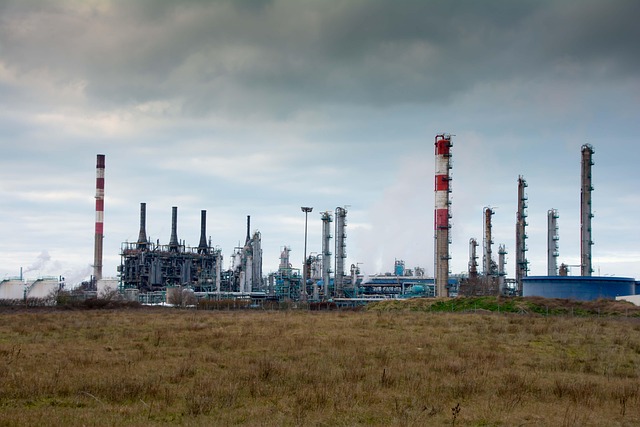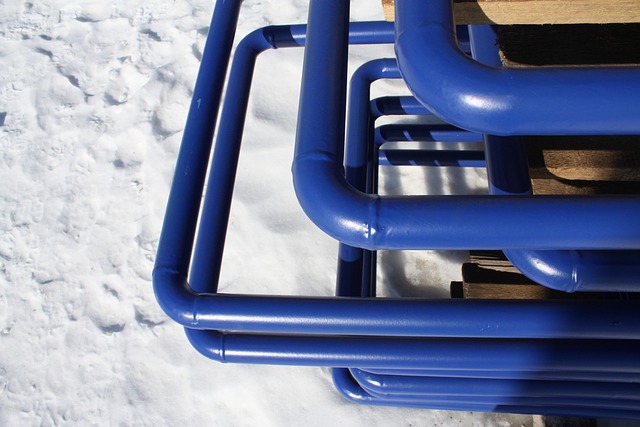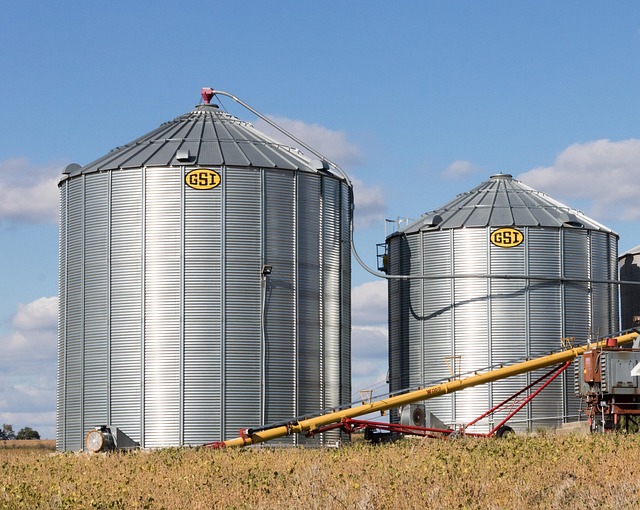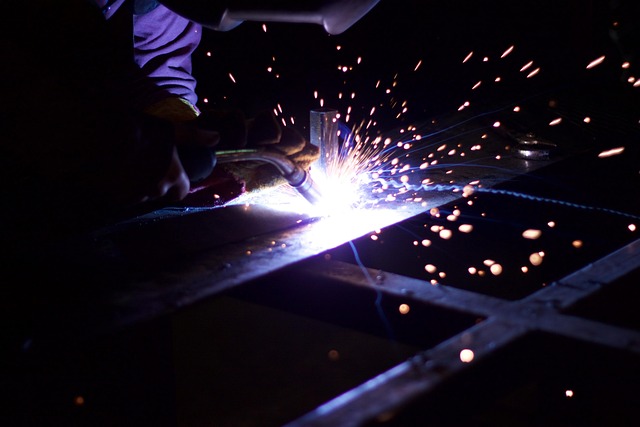Industrial property lending in Colorado focuses on funding for manufacturing, warehousing, and distribution centers, demanding substantial capital. Lenders offer diverse loan products for various stages of business growth, with rates influenced by economic climate, local market conditions, and borrower creditworthiness. The competitive Colorado market includes traditional banks, alternative lenders, hard money loans, private equity, and government programs. Efficient application requires financial health evaluation, property analysis, and clear communication. Financing offers benefits like operational efficiency and stable cash flow but presents challenges of market volatility and limited options. Rising e-commerce demand and remote work trends drive intense competition and favorable rates, fostering dynamic growth opportunities throughout Colorado.
“Unleashing Opportunities: Exploring Industrial Property Lending in Colorado’s Real Estate Market. This comprehensive guide delves into the intricate world of real estate financing, focusing on Colorado’s thriving industrial sector. From understanding unique lending dynamics specific to industrial properties to navigating the application process, we demystify key aspects.
We examine factors shaping interest rates, highlighting market trends and their impact. Furthermore, this article explores diverse loan options available, weighing benefits and challenges of financing industrial assets. Get ready to unlock insights that empower your journey in Colorado’s dynamic real estate landscape.”
- Understanding Industrial Property Lending in Colorado
- Factors Influencing Interest Rates for Real Estate Financing
- Types of Loans Available for Commercial Properties
- The Application Process: What to Expect
- Benefits and Challenges of Financing Industrial Assets
- Market Trends Shaping Colorado's Real Estate Financing Landscape
Understanding Industrial Property Lending in Colorado

Industrial property lending in Colorado is a specialized sector within the broader real estate financing market, catering to the unique needs of businesses seeking to acquire or expand their industrial facilities. This type of lending involves funding for properties such as manufacturing plants, warehouses, and distribution centers, which often require substantial capital due to their size and purpose. Lenders in this space offer various loan products tailored to different stages of a business’s growth, from acquisition and construction to refinancing and debt restructuring.
Colorado, with its thriving industrial sector, sees significant activity in industrial property lending. Local banks, credit unions, and specialized mortgage lenders compete for this market, providing borrowers with competitive interest rates, flexible terms, and customized solutions. Factors like the state’s robust economy, diverse industries, and strategic location between major markets make Colorado an attractive destination for businesses seeking financing to fuel their operations and expansion plans.
Factors Influencing Interest Rates for Real Estate Financing

Several factors play a significant role in determining interest rates for real estate financing, specifically in the context of industrial property lending Colorado. One of the primary considerations is the current economic climate. In a robust economy with low unemployment, lenders may offer more competitive rates as there is reduced risk of default. Conversely, during economic downturns, interest rates tend to rise due to higher perceived risk.
Additionally, market conditions in the specific region where industrial property lending takes place are crucial. High demand for commercial real estate can lead to tighter lending standards and elevated interest rates. On the contrary, a saturated market with ample inventory might result in more favorable terms for borrowers. Lenders also assess the creditworthiness of the borrower, including their financial history, debt-to-income ratio, and ability to repay the loan, all of which influence the final interest rate offered.
Types of Loans Available for Commercial Properties

In the vibrant landscape of commercial real estate in Colorado, investors have a variety of financing options available for their ventures, particularly in the realm of industrial property lending. Traditional loans from banks and credit unions remain a popular choice due to their relatively conservative risk profiles and competitive interest rates. These institutions often cater to both owner-occupants and investors seeking long-term stability.
Alternative lenders have also entered the market, offering flexible terms and faster processing times for specialized properties like industrial spaces. This includes hard money loans, private equity funding, and government-backed programs tailored to commercial real estate investments. Industrial property owners should carefully evaluate their financial needs and risk tolerance when selecting a loan type, ensuring they secure the most suitable financing solution for their specific circumstances in Colorado’s competitive market.
The Application Process: What to Expect

The application process for industrial property lending in Colorado can seem daunting, but with the right preparation, it’s manageable. Borrowers should expect a thorough evaluation of their financial situation and the specific industrial property they intend to purchase or renovate. Lenders will review your credit history, debt-to-income ratio, and the property’s appraised value to assess its potential as collateral.
Throughout this process, clear communication with your lender is key. Be prepared to provide detailed information about the property, including its size, location, zoning, and intended use. Lenders in Colorado offering industrial property lending will also want to understand your business plan and how you intend to utilize the space, ensuring that the loan aligns with both your financial goals and the property’s capabilities.
Benefits and Challenges of Financing Industrial Assets

Financing industrial assets in Colorado offers a unique set of advantages and hurdles for investors. On the benefits side, industrial property lending allows businesses to acquire or expand facilities tailored to their specific needs, such as manufacturing plants, distribution centers, or logistics hubs. This can lead to increased operational efficiency, reduced transportation costs, and better inventory management—all crucial factors in today’s competitive market. Moreover, industrial properties often have long-term leases with stable income streams, providing a solid foundation for investors seeking consistent cash flow.
However, challenges exist. Industrial real estate tends to be more volatile than commercial or residential properties due to the cyclical nature of manufacturing and logistics sectors. Vacancy rates can fluctuate significantly during economic downturns, impacting rental income and property values. Additionally, financing options for industrial assets may be more limited and require substantial down payments compared to other types of real estate investments. Therefore, investors must carefully analyze market trends, tenant creditworthiness, and potential risks before diving into Colorado’s industrial property lending market.
Market Trends Shaping Colorado's Real Estate Financing Landscape

Colorado’s real estate financing landscape is evolving significantly due to current market trends, particularly in the realm of industrial property lending. The state has witnessed a surge in demand for commercial spaces, driven by the growth of e-commerce and distribution centers. This shift has led to increased competition among lenders catering to industrial property investments. As a result, interest rates have become more competitive, making it an attractive time for businesses looking to secure funding for their expansion or new ventures.
The rise in remote work has also played a role in reshaping the market. Many companies are now considering diverse locations, not just major metropolitan areas like Denver. This has opened up opportunities for smaller cities and rural regions within Colorado, where industrial property values might be more affordable. Lenders are adapting to these trends by offering specialized financing options tailored to the unique needs of industrial real estate investors, ensuring a dynamic and accessible landscape for business growth across the state.
Industrial property lending in Colorado is a dynamic sector, influenced by various market trends and factors. Understanding these elements, from interest rate fluctuations to the types of available loans, equips investors with the knowledge to navigate the unique challenges and benefits of financing industrial assets. As the landscape evolves, keeping abreast of these developments is key to making informed decisions in this lucrative segment of Colorado’s real estate market. Industrial property lending continues to play a vital role in shaping the state’s economic growth and infrastructure development.
